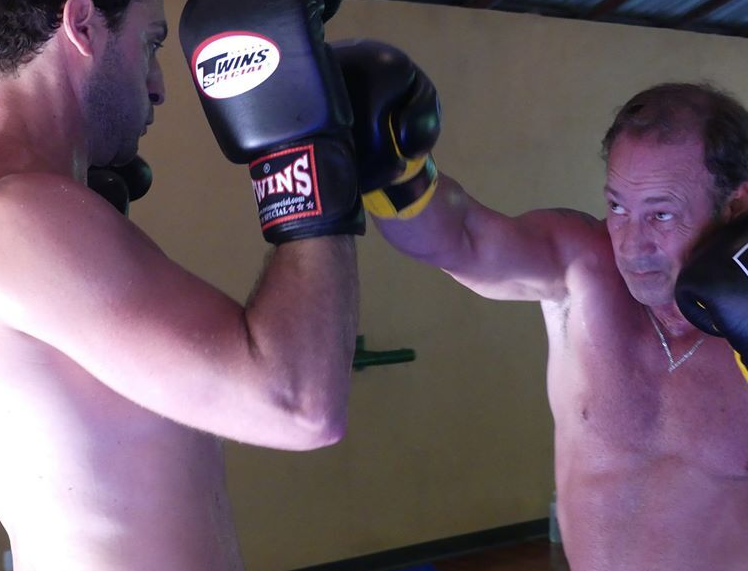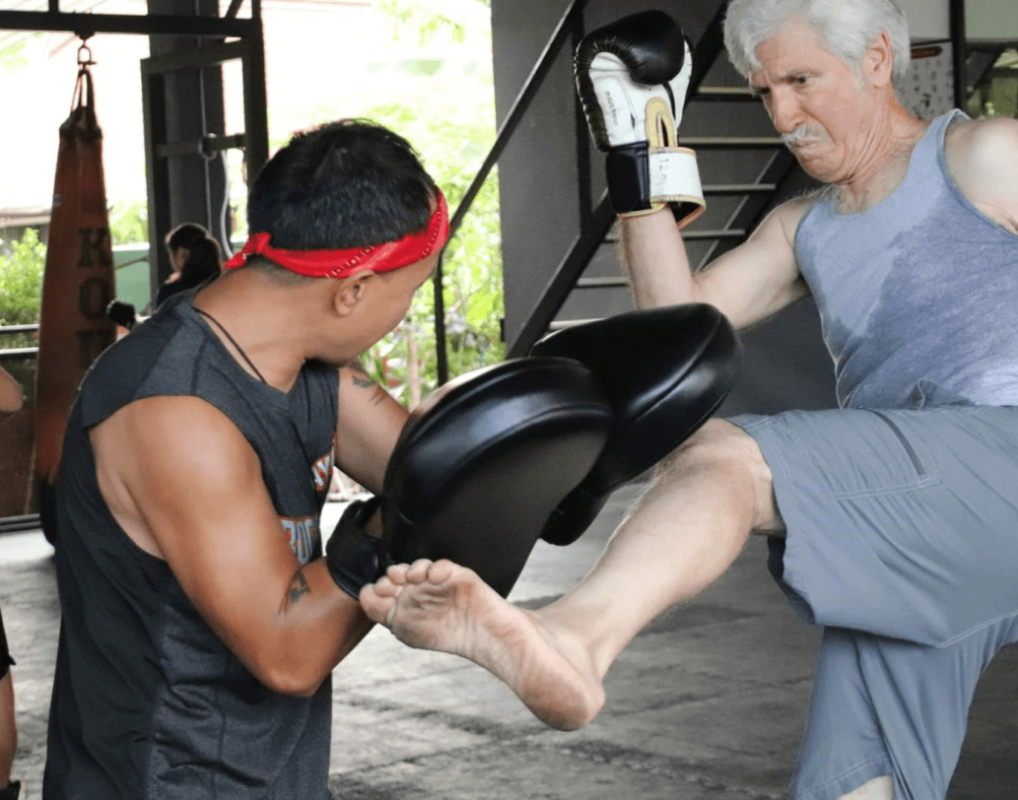Muay Thai Health&Safety
Age and Muay Thai: Safety Tips for Older Practitioners
Introduction
Muay Thai, the “Art of Eight Limbs,” is a powerful and effective martial art that has captivated people worldwide. While often associated with younger athletes, Muay Thai can be practiced by individuals of all ages, including older adults. However, safety is paramount, especially for older practitioners. This article provides valuable safety tips to ensure older adults can enjoy Muay Thai safely and effectively.
Benefits of Muay Thai for Older Adults
Muay Thai offers numerous benefits, including improved cardiovascular health, enhanced strength and flexibility, and increased mental resilience. For older adults, these benefits can translate to a healthier, more active lifestyle.
Consulting with Healthcare Providers
Before starting any new physical activity, especially one as intense as Muay Thai, it’s crucial for older adults to consult with their healthcare providers. A thorough medical check-up can identify any underlying conditions that might require special attention.
Choosing the Right Gym
Selecting a reputable gym with experienced instructors who understand the needs of older practitioners is essential. Look for gyms that offer beginner classes and have a supportive community.
Warming Up and Cooling Down
A proper warm-up and cool-down routine is crucial for preventing injuries. Older practitioners should pay extra attention to stretching and mobility exercises to prepare their bodies for the demands of Muay Thai.
Starting Slow
Older adults should start with basic techniques and gradually progress to more advanced moves. It’s important to build a solid foundation and allow the body to adapt to the new physical demands.
Focus on Technique Over Power
Emphasizing proper technique over sheer power can help prevent injuries and ensure long-term progress. Older practitioners should focus on accuracy, balance, and form.
Listening to Your Body
Older adults should be mindful of their bodies and recognize when to take breaks. Pushing through pain can lead to serious injuries, so it’s important to rest and recover when needed.
Strength and Conditioning
Incorporating strength and conditioning exercises into the training regimen can enhance overall performance and reduce the risk of injury. Older practitioners should focus on exercises that improve core stability, balance, and muscle strength.
Hydration and Nutrition
Proper hydration and nutrition are vital for optimal performance and recovery. Older adults should pay attention to their diet and ensure they are fueling their bodies with the right nutrients.
Using Proper Gear
Wearing the right protective gear, such as gloves, shin guards, and mouthguards, is essential for safety. Older practitioners should invest in high-quality equipment that offers adequate protection.
Training with a Partner
Training with a partner can provide motivation and support. It’s also beneficial for practicing techniques and sparring safely under controlled conditions.
Modifying Techniques
Older adults may need to modify certain techniques to accommodate their physical abilities. Instructors should be willing to adapt training plans to suit the individual needs of older practitioners.
Understanding Limits
Knowing personal limits and not comparing oneself to younger athletes is crucial. Each individual’s journey in Muay Thai is unique, and progress should be measured against personal milestones.
Maintaining Flexibility
Flexibility exercises, such as yoga or pilates, can complement Muay Thai training by enhancing overall mobility and reducing the risk of muscle strains.

Mental Preparation
Mental resilience is as important as physical strength. Older practitioners should cultivate a positive mindset and set realistic goals to stay motivated.
Regular Check-Ups
Regular medical check-ups can help monitor health and prevent potential issues from becoming serious problems. This is especially important for older adults engaging in intensive physical activities.
Community Support
Joining a supportive community of Muay Thai practitioners can provide encouragement and camaraderie. This can be particularly beneficial for older adults who may feel isolated.
Importance of Rest
Adequate rest and recovery are essential components of any training regimen. Older adults should prioritize sleep and allow their bodies to recover fully between training sessions.
Staying Motivated
Setting achievable goals and tracking progress can help older practitioners stay motivated. Celebrating small victories can lead to long-term success.
Avoiding Overtraining
Overtraining can lead to burnout and injuries. It’s important for older adults to balance training with rest and avoid excessive strain on their bodies.
Seeking Professional Guidance
Working with a qualified coach or trainer can provide personalized guidance and ensure safe and effective training. Professional advice can be invaluable for older practitioners.
Practicing Self-Care
Self-care practices, such as massage, stretching, and meditation, can aid in recovery and overall well-being. Older adults should incorporate these practices into their routine.
Dealing with Injuries
In case of injuries, it’s important to seek medical attention promptly and follow a proper rehabilitation plan. Ignoring injuries can lead to long-term issues.
Building a Support System
Having a support system, including family, friends, and training partners, can provide motivation and encouragement. A strong support system can make the training journey more enjoyable.
Adapting to Changes
As bodies change with age, it’s important to adapt training routines accordingly. Flexibility in training plans can help accommodate these changes.
Maintaining a Positive Attitude
A positive attitude can significantly impact training outcomes. Older practitioners should focus on the joy of learning and personal growth rather than comparing themselves to others.
Conclusion
Muay Thai can be a rewarding and fulfilling martial art for older adults when practiced safely and mindfully. By following these safety tips and listening to their bodies, older practitioners can enjoy the numerous benefits of Muay Thai while minimizing the risk of injuries. Remember, age is just a number, and with the right approach, anyone can excel in Muay Thai.

